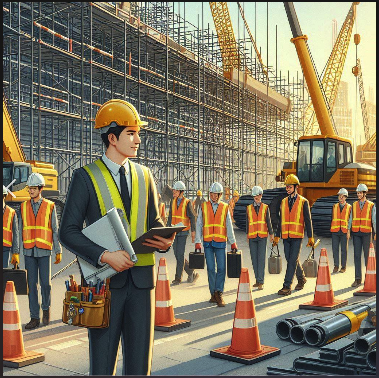Every building needs regular maintenance to keep it in the best condition – residential buildings included. Although there are so many different types of residential buildings; from the smaller single-family homes to the multi-family luxury apartment buildings, there are some common challenges that residential building managers can relate to. Here’s a look at some of the hardest things in maintaining residential buildings.
Round-the-clock Attention
Your tenants use the property 24/7. Therefore, any time of day that they have a problem, as the owner or manager, you have a problem as well. Solving maintenance issues well outside business operating hours is a common challenge that you will need to get used to. There are several options for managing this. Such as:
For smaller housing units:
You may arrange for a technician that stays in the neighborhood to attend to night time emergencies then return later to continue and complete the task at day time. Let’s imagine that your tenant calls you to report a leaking pipe at just past 9.00 pm. They are worried about water damage and they can’t sleep till they are assured that they won’t wake up to find their books and expensive furniture submerged.
The technician can get there and isolate the pipe to prevent further leakage then arrange to come back in the morning to replace the damaged pipe, etc.
For larger apartment blocks
It’s usually standard practice to have a small resident team of emergency staff that works on the night shift and then charge the tenants for this service. Typically, the team will have an electrician and a plumber. They will also have access to a small emergency stock of essential spare parts that they can use for nighttime maintenance interventions. It’s a win-win for everyone; the tenants get quick attention night and day and you can rest knowing that you have reliable staff to handle urgent issues.
Safety
Safety and related factors like hygiene are non-negotiable requirements in any building but more so in residential buildings. The reason this is so critical is because of the risks of injuries or infections to young children and the very elderly.
For example, adults go to work and leave their children at home with a caregiver. If there is an emergency or fire alarm, do the children know what to do compared to an adult? Has the caregiver been told what to do or expect in such situations? Do they know that they should not use the lift if there is a fire?
As the facility manager in a residential building, one of the first things you’ll need to do is to create an emergency response plan and communicate it to everyone that uses the building. Especially in high-rise apartment blocks. That’s not enough though. Remember that to ensure tenants’ safety, most jurisdictions require strict compliance with building maintenance codes such as the International Property Maintenance Code (IPMC). You’ll need to know what’s required and ensure compliance.
In addition, you still need to regularly check that your safety and emergency systems (e.g. smoke detectors and fire suppression equipment) are frequently tested and certified as functional. Other potential hazards are poorly lit staircase areas, poorly kept walkways, swimming pools that are not secured (drowning hazard), etc. No residential building manager wants to face the bad press and negligence claims that could follow these situations so prevention is key.
Limited Access
Another unique challenge with maintaining residential buildings is that there is limited access for inspections and maintenance. You can’t just walk into a tenant’s home whenever you wish to conduct inspections. In fact, some tenants can intentionally refuse to give you access into their homes thereby forcing you to take legal action if you can prove that there’s a genuine reason to enter.
Free Demo
Are you currently responsible for maintaining a residential building or are you planning to make a considerable investment in residential property? Here’s one more tip that will give you an edge over the competition: use maintenance tools and software to streamline maintenance and improve safety.
With these tools, you’ll be better equipped to provide the best services to your residential clients. Waste no more time! All it takes is a few minutes to schedule a demo and get the information that you need.
Free DemoFree Demo






